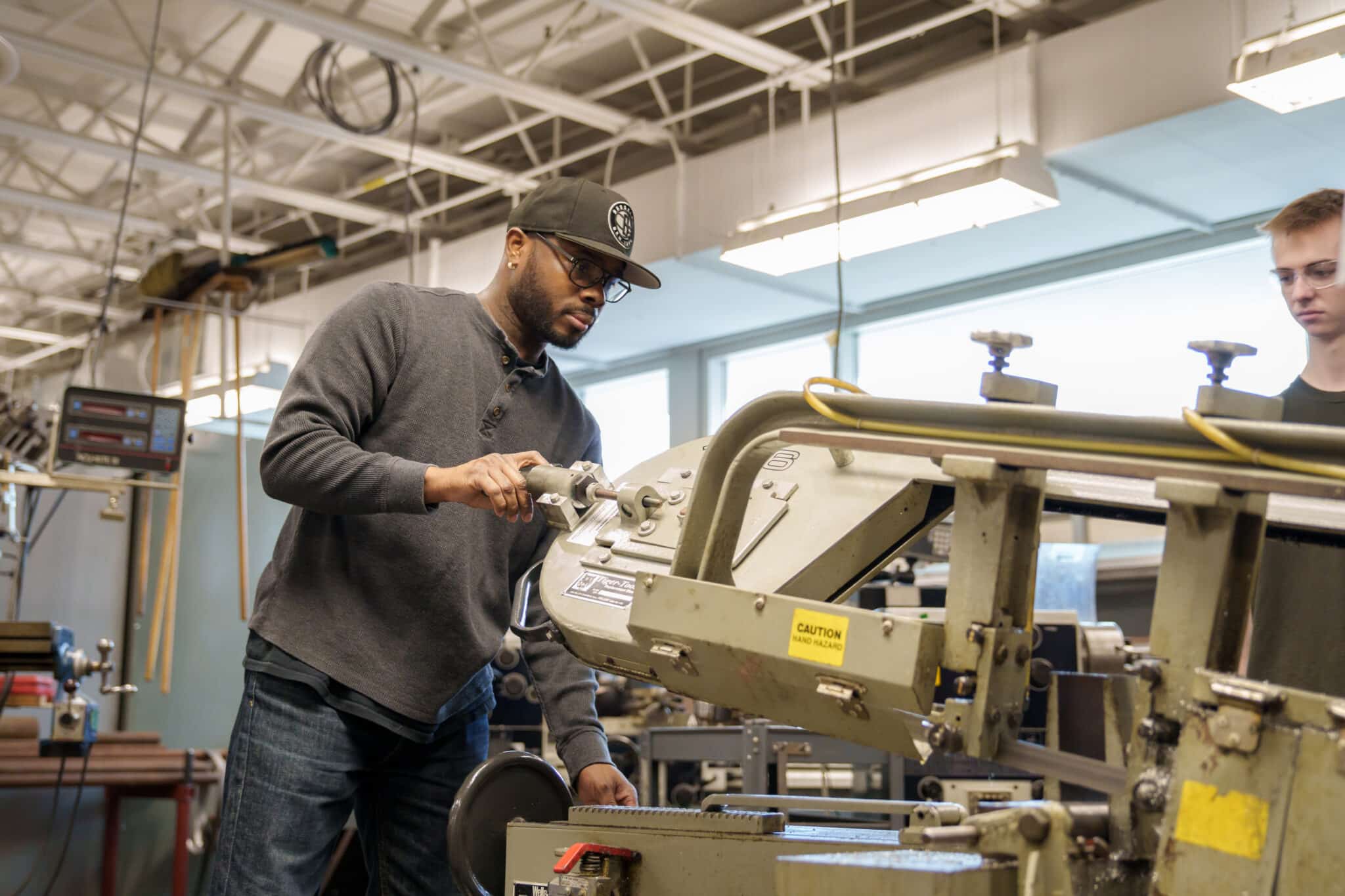Across the country, community colleges act as hubs for the people and regions they serve, not only connecting students with educational opportunities but also creating pathways between learners and well-paying careers.
Three institutions in the ATD Network are taking bold new approaches to align workforce needs with program pathways. By responding to local contexts and working collaboratively with industry partners, Temple College, Northern Essex Community College, and Delta College are yielding transformative results for students, their families, and their communities.
An advanced manufacturing revolution in Texas
In Central Texas, Temple College (TC) is at the heart of a massive economic shift taking place in the region. Samsung, in particular, has had a major impact, preparing a workforce to support more than 38,000 jobs in the area. Its fabrication plant in Taylor, a small city where TC has one of its campuses, is the largest semiconductor manufacturing facility in the U.S. To meet the needs of its students and industry partners, TC is aligning its programs with industry trends to become a cornerstone in the community’s workforce development.
Temple College serves a majority-rural student population and takes seriously its role to be a catalyst for the community. Its advanced manufacturing programs give students affordable access to workforce training, creating opportunities for upward mobility and preparing the community to thrive in the midst of significant economic changes. Multiple funding sources have made it possible for TC to develop state-of-the-art training facilities, but the college is also taking workforce training to the community through intentional initiatives like dual enrollment programs and a mobile STEM lab.

Photo courtesy of Temple college
TC’s dual enrollment programs give high school students hands-on experience in engineering and robotics. In fall of 2025, the main campus in Temple will launch its second cohort of the Engineering Pathway for the Texas Bio Science Institute, where participating students will be able to graduate from high school with an associate degree and then continue their education to earn a bachelor’s degree through Texas A&M University Central Texas — all without leaving Temple. In rural communities where access to higher education can be limited, dual enrollment programs like these bring critical opportunities to learners by meeting them, literally, where they are.
TC also serves a large veteran population, offering short-term training programs designed to help service members who have recently exited the military find quick entry into new employment and the opportunity to receive credit for their military training. These training programs also benefit civilians whose careers have been affected by economic shifts: Workers from declining industries can transition into high-demand fields like advanced manufacturing with the advantage of flexible learning options that make training more accessible to a diverse population.
By providing comprehensive training and services to all students, particularly those in rural communities or who have been affected by a rapidly evolving workforce, Temple College continues to play a central role in strengthening the regional workforce and building an economically vibrant community.
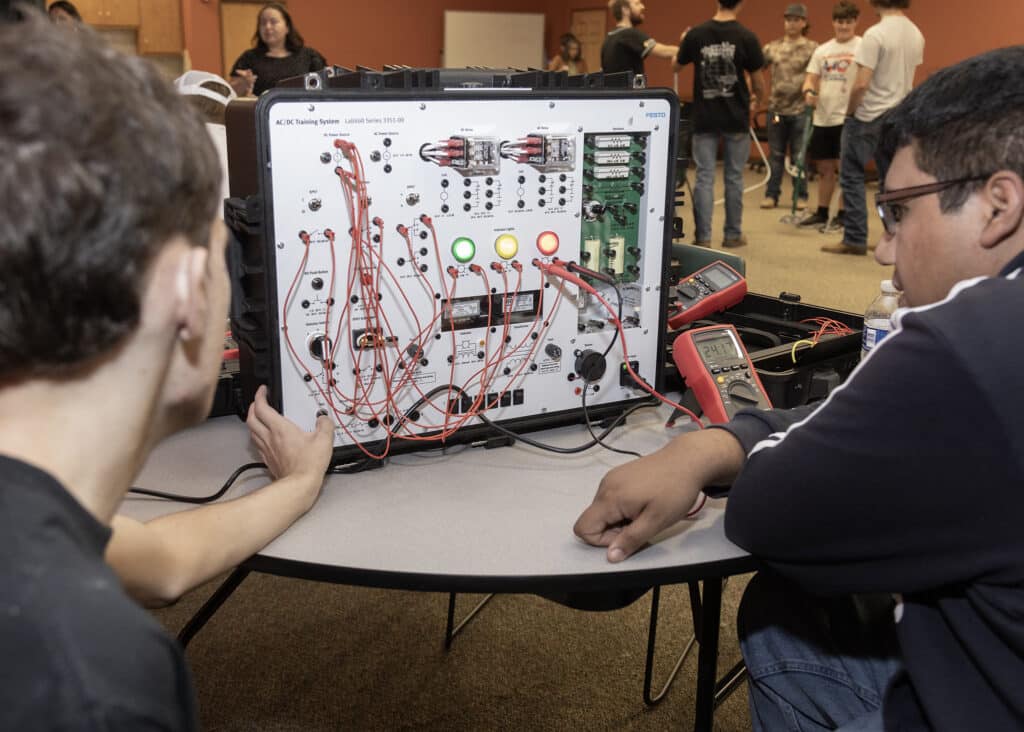
Photo courtesy of Temple College
Developing early childhood educators in Massachusetts
At Northern Essex Community College (NECC), competency-based education programs are helping to fill an urgent need in the local workforce. Competency-based education, or CBE, focuses on a student’s ability to demonstrate mastery of a subject, rather than the amount of time they’ve spent in a classroom. This means learners with prior experience, either from work or from education, can progress through coursework — and earn credentials — at a faster pace and on a flexible schedule.
A Hispanic-Serving Institution (HSI), NECC has campuses in northern Massachusetts, about an hour outside of Boston. Like many communities across the country, the area has an acute need for more early childhood educators. To meet this need, NECC has begun testing and scaling its CBE model in the Early Childhood Education program. Initially, CBE was offered for individual courses, but that quickly evolved to cover the entire degree and certificate program, as the college found students benefited most from a structured approach and comprehensive pathway.

Photo courtesy of Northern Essex Community College
The first cohort of CBE completers have just earned their certificates, and early indicators are positive: Students in the CBE courses performed at the same level or better than those in traditional models, and the programs show higher completion rates with reduced time-to-completion for students with prior experience. Because programs are developed in partnership with regional employers, NECC has also seen improved job placement, with employers reporting greater satisfaction with CBE students’ job readiness.
NECC is also providing accelerated pathways for students to advance within the early childhood education industry: The college has created a shorter-term ECE certificate that satisfies Massachusetts’ Lead Teacher and Director level certifications. And in fall 2025, NECC will add a new ECE Foundational Certificate, developed in collaboration with the state’s Department of Early Education and Care, that meets current Lead Teacher certification requirements and stacks into the existing Director’s certificate and associate degree program.
While still in its early stages, the Early Childhood Education CBE program has shown the potential for competency-based education models to address critical workforce needs. It has had particular benefits for adult learners, students who work, veterans, and parenting students by validating their prior skills and making efficient use of their time. CBE is working, and it’s growing: NECC plans to expand this model to its Healthcare Technology and Business Management program in the fall of 2025.
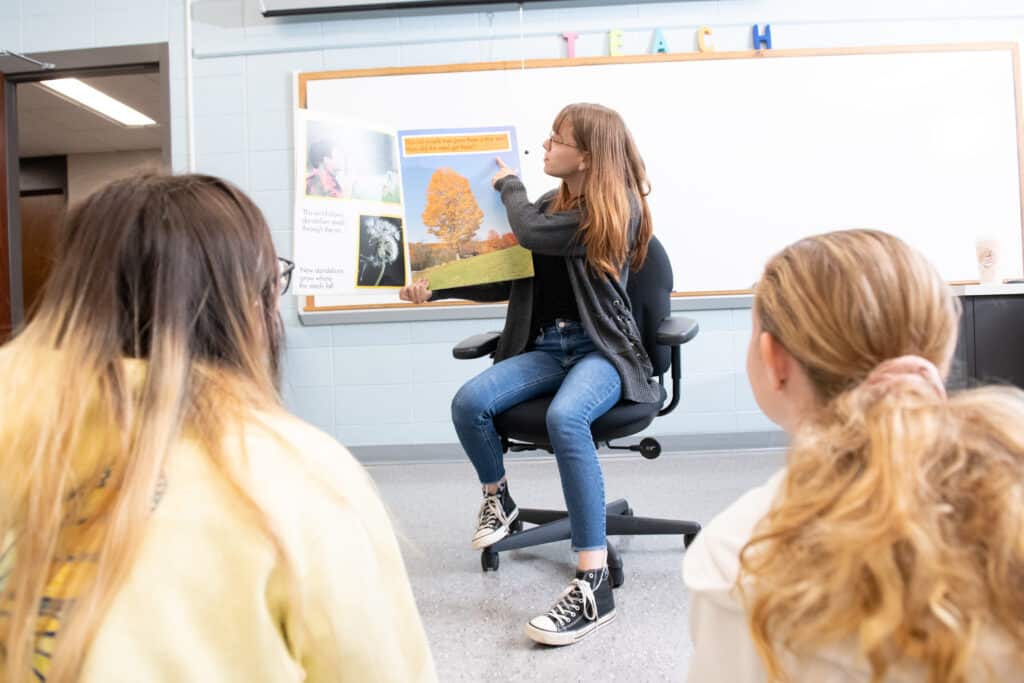
Photo courtesy of Northern Essex Community College
A coordinated effort to support adult learners in Michigan
Like NECC, Delta College in Michigan is taking steps to recognize students’ prior experience and streamline pathways to family-sustaining careers. And like Temple College, Delta is seeing new industries like semiconductor manufacturing rise up in its backyard. Credit for prior learning (CPL) is one of the strategies Delta has adopted to offer multiple educational pathways that meet the needs of both its students and the regional workforce.
By providing flexible and accelerated ways for students to earn a credential, CPL helps to fulfill the “Delta of tomorrow” promise to “increase completion numbers and rates for all students while eradicating opportunity gaps.” Delta is especially dedicated to supporting the Asset Limited, Income Constrained, Employed (ALICE) population. This demographic often includes adults with real-world skills who lack formal educational qualifications. CPL offers them a crucial pathway not just to higher education but also to economic upward mobility. By expanding access to higher education for ALICE individuals, Delta hopes to play a role in breaking the cycle of poverty in its community.
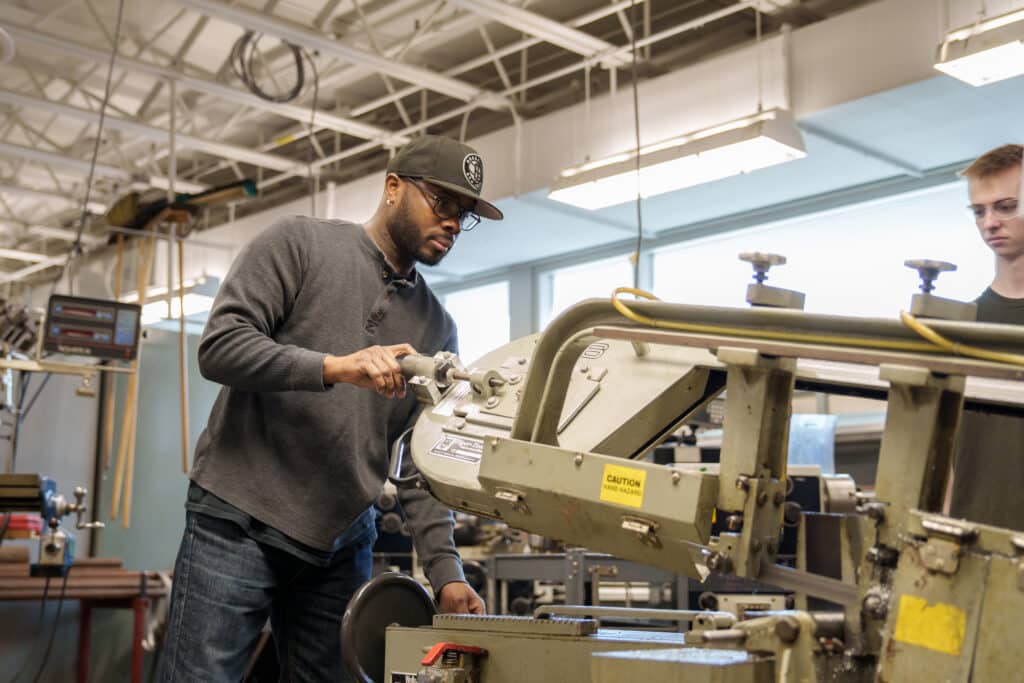
Photo courtesy of Delta College
Delta is not engaged in this work alone: The college was part of the Improving Economic Mobility for Adult Learners Initiative, a joint project facilitated by ATD and Jobs for the Future that convened state teams to build on existing college programs and improve outcomes for marginalized students. Alongside Grand Rapids Community College and Macomb Community College, Delta adopted effective and innovative practices — including CPL — that enhanced its support of students. More importantly, the initiative allowed the three colleges to address challenges faced by adult learners statewide.
Through CPL, Delta students have saved an estimated $14,342 in tuition costs, or $142 per credit hour. The learning model’s recognition of nontraditional learning experiences not only saves students time and money, accelerating their paths to well-paying careers, but it also enhances access and a sense of belonging for students who may not otherwise feel comfortable or accepted in conventional educational settings. While Delta has achieved success through these efforts, building momentum has taken time, and the actual student assistance yield remains low.
After an initial pilot that focused on adult learners and fields like computer science, Delta is ready to replicate and scale its CPL model, generating even more opportunities to promote student success, enhance the region’s workforce skill set, and contribute to the community’s economic vitality.
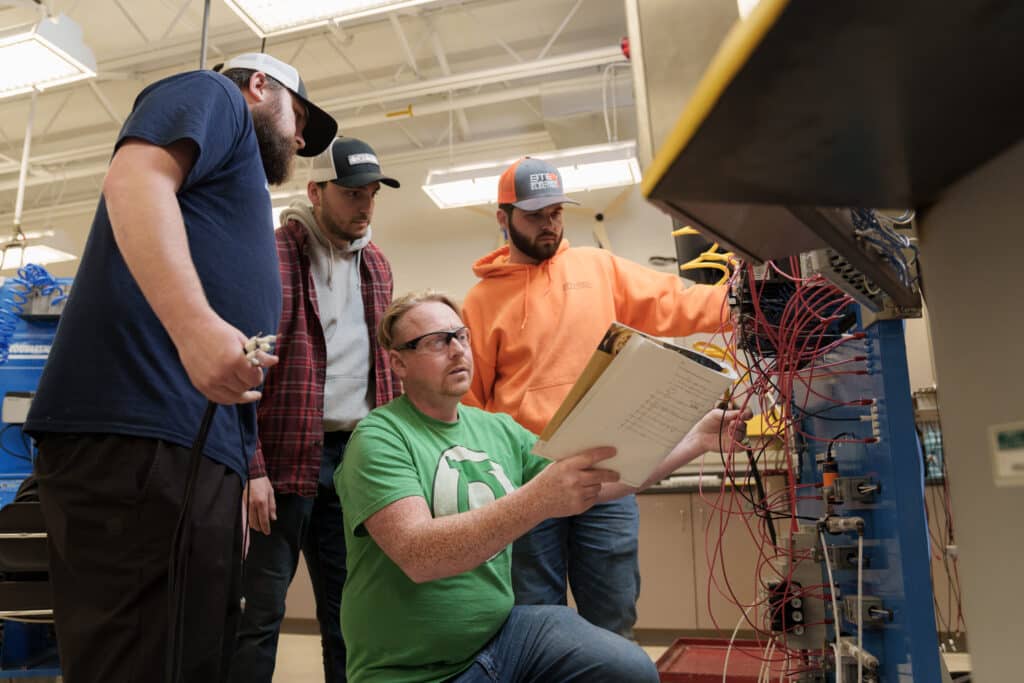
Photo courtesy of Delta College
